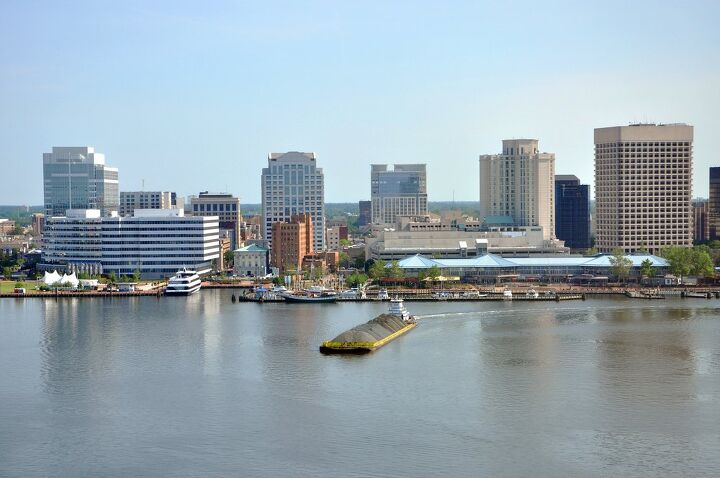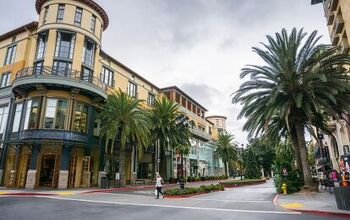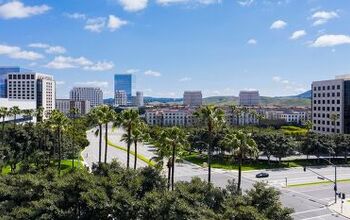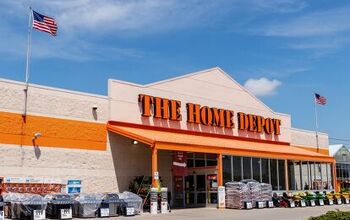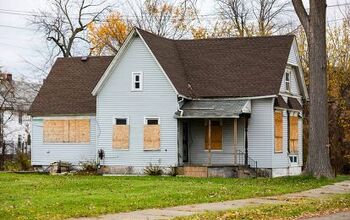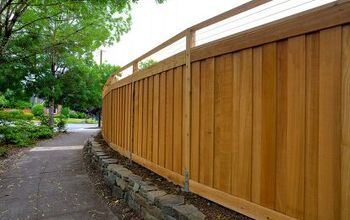What Are The Pros and Cons Of Living In Norfolk, VA?

Not many weekends go by without some concert, sporting event, or festival in Norfolk. Living in Norfolk is a beautiful experience and sure to keep you busy — if you would like to be.
Of course, it has drawbacks like any big city. But, with the perfect location and cost of living, Norfolk is a terrific place to live!
Norfolk has many pros – a growing job market, a low sales tax of 4.3%. The property taxes are the fourth lowest in the country. It has many beaches with 114 miles of shoreline, world-class cuisine, fun culture, great entertainment. But some of the cons of Norfolk are traffic congestion, hot, sticky summers, and potholes.
Do You Need to Hire Movers?
Get free, zero-commitment quotes from pro contractors near you.

Pros of Living in Norfolk, VA
If you are considering relocating to Norfolk, here are some facts to consider.
Beautiful Beaches
Virginia Beach is probably one of the most popular beach vacation spots in the state. But Virginia also has quality beaches all along the Eastern Shore coastline in Norfolk.
Norfolk maintains three beach parks, Community Beach Park, Ocean View Beach Park, and Sarah Constant Beach Park. Various festivals and live music can be enjoyed on the beaches in Norfolk. In addition, there are other beautiful beaches up and down the coastline.
For lovers of the water, Norfolk certainly has more to offer than most cities.
Cost of Living
The cost of living in Norfolk is comparatively lower than its upscale Hampton Roads counterparts. It is slightly below the country’s average. In Norfolk, the average cost of utilities, groceries, housing, and transportation are below the national averages.
There are ways, however, to save on food costs with careful planning. First, buy in bulk at stores like Costco or Albertsons. Then, depending on the time of year, you can purchase local produce at farmer’s markets. Lower your food costs, and you lower your cost of living.
Housing
Over the last decade, home appreciation in Norfolk averaged 1.8%. Current appreciation is at 4.0%. The average cost of a home in the Norfolk area is $185,900. The average age of homes in the Norfolk area is 55 years old.
Renters make up 50.9% of the population of Norfolk. With 3.9% of apartments and houses available to rent in Norfolk, it wouldn’t be a challenge to find affordable housing.
Employment
The job market in Norfolk has increased by 1.3% over the last year. Over the next ten years, predicted job growth is 31.2%.
A working person averages around $101,000 per year. Salaries range from $25,500 to $449,000. This is the average yearly salary, including benefits.
High Paying Job Sectors in Norfolk
- Advanced Manufacturing
- Business, Management, and Professional Services
- Healthcare, Life Sciences, and Biotechnology
- Information Technology
- Insurance
- Maritime, Transportation, and Logistics
Education
There are five high schools, nine middle schools, 34 elementary schools, and 16 additional programs.
Norfolk State University and Old Dominion University are both four-year public universities and located in Norfolk. Advanced Technology Institute is a private, two-year, for-profit school also located in Norfolk.
Entertainment
Norfolk has much entertainment value! It is home to historical attractions, unique retail shops, world-class museums, and many delicious restaurants. Most attractions are within a short walking distance, car, or train ride.
You can play golf, sail, kayak, or hike only minutes from the downtown area. Tour the beautiful harbor, or tour the city by light rail, bike, or on foot.
There are many excellent family-friendly activities in Norfolk. Besides water sports, there is the Norfolk Botanical Garden, Virginia Zoo, and Nauticus, the maritime discovery center, to name a few.
Virginia Stage Company and The Wells TheaterThe Wells Theater was built in 1912 and served as the flagship for Wells Amusement Enterprises. The Enterprise is forty vaudeville theaters owned by Otto and Jake Wells throughout southern America.
Virginia Stage Company chose the Wells Theater in the downtown area of Norfolk for its home after restoration was completed in 1986. The theater is now a National Historic Landmark.
Many of the country’s leading performers have performed at the Wells, such as John Philip Sousa, Otis Skinner, Will Rogers, and Fred and Adele Astaire, among others.
Virginia Stage Company has become an extremely respected regional theater company. They attract performers from off-Broadway, Broadway, and other theaters across the nation and from television and film.
Recent highlights include a groundbreaking presentation of A Midsummer Night’s Dream with the Virginia Symphony. Also, the world premiere of The Secret Garden, the Tony Award-winning musical.
Cons of Living in Norfolk, VA
Every city has its drawbacks. Here are a few of Norfolk’s.
Crime
Norfolk has a crime rate 115% higher than the Virginia average. It is 57% higher than the average in the U.S. It has a crime rate of 42 per one thousand residents. Norfolk’s crime rate is one of the highest in America compared to the smallest towns to the very largest cities.
Based on yearly FBI reports, Norfolk is considered one of the most dangerous cities in Virginia.
Anyone considering relocating to Norfolk should be aware the crime rate is higher than most U.S. cities. Let’s look closer at Norfolk’s crime statistics.
What is the chance of being a crime victim in Norfolk?- One chance in 180 of being the victim of violent crime
- One chance in 27 of being a property crime victim
- One chance in 24 of being a victim of any type of crime
So don’t even think about leaving your doors unlocked at night — or any time.
Climate
Everyone’s perspective is different on what the perfect climate would be to live in. So, the weather in Norfolk could also be an excellent reason to reside there.
Winter temperatures, December through February, are typically 32 to 53 degrees. Snowfall generally will be below average. The best chance for snow is in early January. Generally, when hit with a snowstorm, it is unexpected and catches everyone unaware. Norfolk averages five inches of snow annually, which is several inches lower than the national average of 28 inches. Winters are usually gray and bleak.
If you plan on living in Norfolk, make sure you can handle the normal high humidity for the area. April and May are cooler than usual, with above-average rainfall. The hottest period is in mid-July. Along with the humidity comes the threat of tornadoes.
Norfolk gets some kind of precipitation 114 days yearly. Precipitation is rain, sleet, snow, or hail that falls to the ground. Norfolk gets 47 inches of rain annually on average. The national average is 38 inches of rain. Norfolk is sunny, 215 days per year on average. The national average is 205 sunny days.
Early August is hurricane season with possible tropical storm threats. September and October are cooler. Expect tropical storms in early to mid-September.
Weather Highlights- Summer high temperature in July is around 88 degrees, with high humidity
- Winter low temperature in January is 33 degrees
- Average rainfall of 47 inches per year
- Average snowfall is 5 inches per year
So, unless you enjoy hot, sticky summers and gray, bleak winters, perhaps Norfolk isn’t for you.
Do You Need to Hire Movers?
Get free, zero-commitment quotes from pro contractors near you.

Condition of Roadways
One Norfolk citizen complained of a pothole in front of his house that he could lay down in. It measured 9.5 feet long by 4.5 feet wide and 4 inches deep.
The City of Norfolk isn’t exactly on top of things when it comes to patching potholes.
The two common causes of potholes are traffic and water. Potholes form over long periods as rain and snow seep into the pavement cracks. It causes the soil to become muddy, eroding the support.
Hitting a pothole can cause alignment problems, bent wheel rims, shock and strut issues, or internal tire damage. Depending on the severity of the impact, be prepared to spend money on tire or car repairs if you choose to live in Norfolk.
Traffic
The Virginia Peninsula regularly experiences considerable gridlock. Unfortunately, this makes the chances of getting to your destination on time somewhat risky.
Traffic is often bumper to bumper out of Norfolk on the Hampton Roads Bridge Tunnel. Also, in the Downtown and Midtown Tunnels area, and on I-64 and I-264.
A tech company that produces traffic information devices ranked Hampton Roads as one of the 40 worst areas nationally for traffic congestion. Hampton Roads, of which Norfolk is a part, has the country’s 31st worst traffic congestion. It is bad enough to rank as 132nd out of 174 major international metro areas.
If you decide to live in Norfolk, make sure you add plenty of time to your daily commute if you plan on getting to your destination on time. Don’t cross Norfolk off your list of potential places to move to just yet. While there are some negatives, you must weigh them against the positives as well.
The beautiful beaches, ocean views, terrific cuisine, and entertainment definitely make Norfolk worth considering.
Related Articles

We are a team of passionate homeowners, home improvement pros, and DIY enthusiasts who enjoy sharing home improvement, housekeeping, decorating, and more with other homeowners! Whether you're looking for a step-by-step guide on fixing an appliance or the cost of installing a fence, we've here to help.
More by Upgraded Home Team



